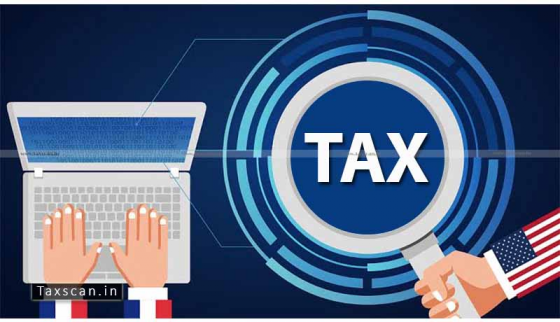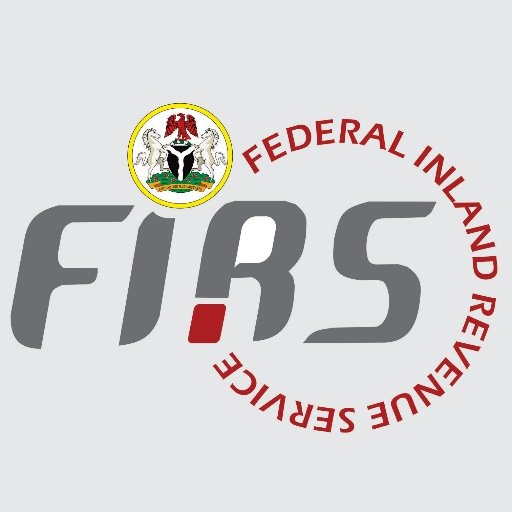- Home
- Grey Matter
- Determination Of Significant Economic Presence By A Foreign Entity Taxable In Nigeria’s Digital Economy
Determination Of Significant Economic Presence By A Foreign Entity Taxable In Nigeria’s Digital Economy
Posted on Mon 15 Jun 2020
- Download Resource
INTRODUCTION
Pursuant to powers conferred under section 13(4) of the Companies Income Tax Act[1] (“CITA”), as amended by the Finance Act (2019), the Minister of Finance, on February 3, 2020, issued the Companies Income Tax (Significant Economic Presence) Order, 2020 (the “Order”),which become effective on the date the Order was issued.
The Finance Act amended the provisions of section 13(2) of the CITA, and has now extended its purview and applicability to profits that may accrue and or be attributable to the economic activities of any foreign entity in Nigeria’s digital economy; to the extent that such an entity has significant economic presence in Nigeria. The Finance Act however does not define what constitutes “significant economic presence”. The power to make such determination is vested in the Minister of Finance.
Besides highlighting the key provisions of the Order, this article seeks to identify and analyse the possible impact of the Order on the activities of foreign entities with business interests/operations in Nigeria’s digital economy, as well as potential regulatory, compliance and enforcement issues.

PRE-FINANCE ACT REGIME
Prior to the enactment of the Finance Act, a foreign or Non-Resident Company (“NRC”) was only taxable in Nigeria, where it was established that it had commercial presence/business interest in the country, and it had ascertainable profit that was or could be attributable to its in-country presence.
The basis and general consideration used to determine and establish the taxable commercial presence of an NRC in Nigeria, is the existence of any of the activities listed below or a combination of such activities:
(i) Having a fixed base in Nigeria – this may connote physical presence of its staff in Nigeria, having an address in Nigeria, or any significant territorial connection to Nigeria; and or, if the Nigerian location is a place of regular resort for the NRC’s business[2];
(ii) Having an arrangement with a dependent agent who executes commercial transactions on its behalf in Nigeria;
(iii) Execution of a single contract for surveys, deliveries, installations, or construction in Nigeria (otherwise known as turnkey projects); or
(iv) Engaging in an artificial or fictitious transaction, which involves a related party in Nigeria.[3]
Establishing physical presence, with the tax applicable to such presence, is usually onerous and contentious. The difficulty associated with establishing local presence and incidences of tax relative thereto, was a beneficial tax shield for NRCs involved in the digital economy; because the fact of having a physical presence in Nigeria was very difficult to establish.
The leakage now appears to have been closed, as the Finance Act prescribes that the profits of NRCs derived in Nigeria, accruing from undertaking any of the activities set out below, shall be taxable under the CITA:
Operation in Nigeria’s digital economy; or
Provision of technical, management, consultancy, or professional services in Nigeria; provided an NRC has significant economic presence in Nigeria.
KEY PROVISIONS OF THE ORDER
A NRC engaged in business or that carries on activities in Nigeria’s digital economy shall be deemed to have significant economic presence in Nigeria for tax purposes, if it:

(i) Derives gross turnover or income of more than N25 million or its foreign currency equivalent in an accounting period, from its digital activities in Nigeria[4];
(ii) Uses Nigerian domain names (.ng) or registers a website address in Nigeria; or
(iii) Has purposeful and sustained interactions with persons in Nigeria by customizing its digital pages or platforms to target persons in Nigeria, including reflecting the prices of its products or services in Naira or it provides options for billing or payment in Nigerian currency.
In relation to NRCs from jurisdictions that have in place a Double Tax Treaty Agreement (“DTT”) to which Nigeria is a party, and where the DTT specifically addresses taxation of the digital economy, the Order prescribes that the potential tax liability of such NRCs will be determined under the applicable DTT.
For the purpose of determining whether the N25 million gross turnover or income threshold specified in the Order has been met, activities carried out by connected persons in any accounting year shall be aggregated. Connected persons is defined in the Order to include:
a) Persons that are “associates” as defined in the Companies and Allied Matters Act[5] (“CAMA”); or
b) Persons that are business associates in any form, provided that persons are considered to be business associates where: (i) one person participates directly or indirectly in the management, control, or in the capital of the other; or (ii) the person or persons participate directly or indirectly in the management, control, or in the capital of both enterprises.
NRCs engaged in the provision of technical, management, consultancy, or professional services in Nigeria shall be deemed to have significant economic presence in Nigeria, and be subject to tax in any relevant accounting year, if they earn any income or receive any payment from a person in Nigeria, or from a fixed base or agent in Nigeria. The Order defines “services of a technical nature" to mean any service of a specialized nature (including advertising services, training, or the provision of personnel) that is not a professional, management, or consultancy service.
Under the new dispensation, a NRC shall not be construed or deemed to have significant economic presence in Nigeria, and thereby become taxable, if all it does in-country is (i) make payments to an employee of the person that effects payment under a contract of employment; (ii) make payments for teaching in an educational institution or for teaching by an educational institution; or (iii) receive payments from a foreign fixed base of a Nigerian company.
COMMENTARY
By introducing a new tax chargeable on the activities of foreign entities carrying on business in the digital economy, the Order heralds a paradigm shift in our tax regime. Given the technological disruptions and interventions that have re-defined the global business landscape heavily geared towards e-commerce, updating our tax system to accommodate the present realities is not only commendable, it is also unassailable, as it will bring many foreign entities operating in Nigeria hitherto shielded from tax within our taxation purview.

Though timely and pragmatic, we note a regulatory impediment to the effective implementation of the provisions of the Order, and in effect, the attainment of the Government’s overall objective in respect thereof. For instance, the applicability of the Order to NRCs from countries and jurisdictions that have subsisting DTTs with Nigeria and the mechanism for the imposition and collection of tax from such NRCs is unclear and may be fraught with implementation and enforcement challenges. Whilst the Order stipulates that the tax liability of a NRC, shall be determined in accordance with the consensus arrangements in respect of the taxation of the digitalized economy under an applicable DTT, the problem in this regard is the fact that Nigeria is not presently a party to any DTT that speaks to, or has any mechanism for, taxing the digital economy. Needless to over-emphasize, the hurdles and challenges inherent in amending bilateral international agreements, such as a DTT, and the attendant statutorily prescribed process for domesticating such an agreement for the purpose of it having legal efficacy.

It is also not discernible from the Order, the accounting indices and mechanism the Federal Inland Revenue Service (“FIRS”) will apply, in ascertaining the profits of NRCs that carry on activities in the digital economy who however do not have or maintain any determinable physical presence in Nigeria. It is unclear if the FIRS shall resort to assessing such NRCs to tax based on a determined turnover, in accordance with the provisions of sections 30(1)(b) and 65(3) of the CITA, even though, the exercise of this power may likely be open to challenge and contest by NRCs.
Existing applicable tax instruments, such as the Income Tax (Country by Country Reporting) Regulations 2018 (in relation to NRCs with determinable presence in Nigeria) and the Income Tax (Common Reporting Standard) Regulations 2019 (in relation to NRCs with no determinable presence in Nigeria) could be helpful and useful sources of obtaining credible information, which can assist the FIRS properly and fairly administer the tax now applicable to foreign entities that are active in the digital economy. Similarly, the limited collaboration and exchange of information arrangements between Nigeria and certain members of the Organization for Economic Cooperation and Development (OECD) can also be a useful tool, which can be leveraged to overcome some administration and enforcement challenges.
Another regulatory issue, which may likely arise as the FIRS positions to administer the provisions of the Order, may be in relation to a NRC’s use of the internet, websites and other web-based domain name(s). The Order qualifies foreign entities who use Nigerian domain names (.ng) or register a website address in Nigeria; or have purposeful and sustained interactions with persons in Nigeria, by customizing their digital pages or platforms to target persons in Nigeria (including reflecting the prices of their products or services in Nigerian currency or providing options for billing or payment in Nigerian currency); as having taxable significant economic presence in Nigeria even if they do not meet the prescribed N25 million gross turnover or income threshold in any relevant assessment year. This implies that such entities will have to file tax returns in Nigeria, and will be required to comply with other tax registration and reporting obligations and other requirements specified in the CITA, or by the FIRS, regardless of the fact that they may be exempt from tax as “small companies” under the Finance Act.
Further, it is also not inconceivable that the FIRS may continue to leverage its statutory “powers of substitution”, under section 31 of the FIRS (Establishment) Act, 2007 to appoint banks and other relevant financial institutions, to source and obtain information on NRCs with a view to bringing them under the administrative purview of the Order.
The identified challenges nonetheless, we commend the Minister’s forward looking subsidiary legislation, which is properly aimed and focused on advancing and bringing our tax legislation, system and its administration in line with the 21st century realities, and the changing global digital economy and technology-driven commercial practices.
The Grey Matter Concept is an initiative of the law firm, Banwo & Ighodalo.
DISCLAIMER: This article is only intended to provide general information on the subject matter and does not by itself create a client/attorney relationship between readers and our Law Firm or serve as legal advice. We are available to provide specialist legal advice on the readers’ specific circumstances when they arise.
[1] Cap. C21, Laws of the Federation of Nigeria (“LFN”) 2004.
[2] See Addax Petroleum Services Ltd. v FIRS (2013) 9 TLRN 126.
[3] See section 13(2) of the CITA, LFN 2004 (as amended in 2007).
[4] Digital activities include one or more of the following: (i) streaming or downloading services of digital contents, including but not limited to movies, videos, music, applications, games, and e-books to any person in Nigeria; (ii) transmission of data collected about Nigerian users which has been generated from such users’ activities on a digital interface, including website or mobile applications; (iii) direct or indirect provision of goods or services through a digital platform to Nigeria; and (iv) provision of intermediation services through a digital platform, website or other online applications that link suppliers and customers in Nigeria.
[5] Cap. C20, LFN 2004
More Insight

 Fri 21 Mar 2025
Fri 21 Mar 2025IP PROTECTION FRAMEWORK IN NIGERIA - TRADEMARKS
 Wed 18 Dec 2024
Wed 18 Dec 2024SEC’s Draft Rules Facilitate Pension Funds’ Investment In ...






